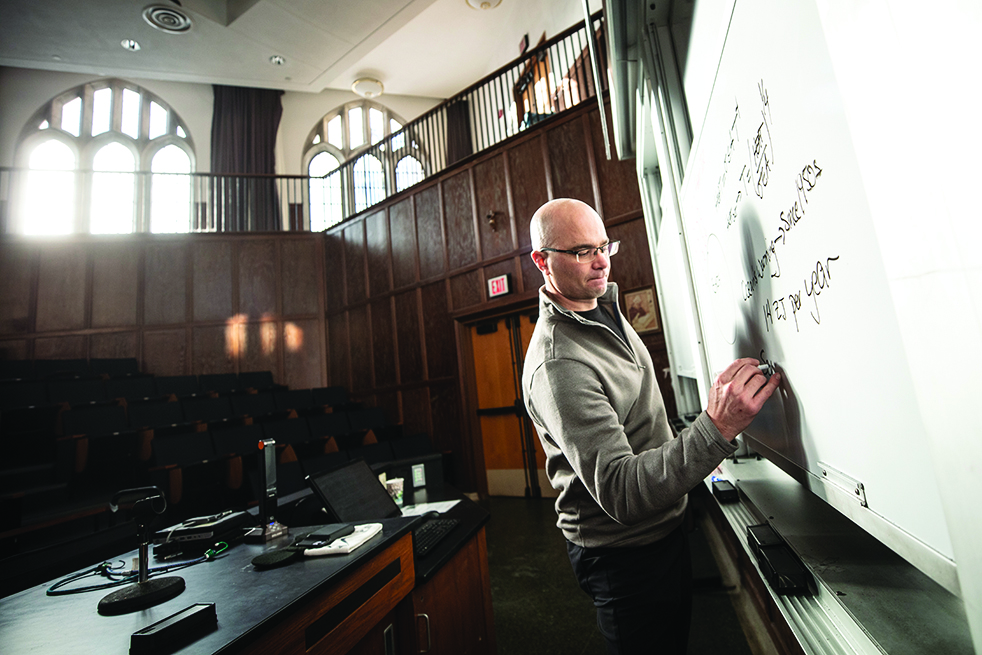For the fourth year in a row, St. Thomas is among the top green colleges in North America, according to the Princeton Review’s latest annual Guide to Green Colleges.
This year’s guide was more competitive than in previous years, with 420 institutions in the U.S. and Canada selected among 835 colleges and universities that were surveyed. St. Thomas’ “Green Rating” continues to trend upward, receiving this year a 93 rating out of 99 – the highest possible score, compared to 85/99 in the 2019 edition and 89/99 in 2020. Colleges that earned a Green Rating score of 80 or higher were chosen to be included in the Guide to Green Colleges.
Prioritizing sustainability pays off
St. Thomas' Green Rating was among the top five Minnesota institutions appearing in the 2022 edition of the Guide to Green Colleges, ahead of the University of Minnesota-Twin Cities and just below Macalester College, according to analysis by St. Thomas. Analysis also reveals that the university scores among the top 10 of select Catholic peer institutions.
The Princeton Review scores colleges based on 25 data points, which include the school's use of renewable energy, its recycling and conservation programs, the availability of environmental studies in academic offerings, and career guidance for green jobs.
St. Thomas has definitely been on a trajectory to improve sustainability across campus, which includes achieving carbon neutrality by 2035, as cited in its 2019 sustainability strategic plan that’s being implemented over a five-year period. As it works toward those goals, the university has received a gold STARS rating from the Association for the Advancement of Sustainability in Higher Education, Sierra magazine's Cool Schools ranking, and three Marks of Distinction from the Climate Leadership Network. Additionally, St. Thomas’ Board of Trustees formally approved on Nov. 4 a university commitment to divest from fossil fuels.
“To pursue our sustainability goals, the university has introduced a variety of opportunities for our students and employees to engage," said Amir Nadav, director of campus sustainability and chair of the Sustainability Advisory Council. “In recent years, we opened a LEED Platinum residence hall and a Center for Microgrid Research. We have integrated more sustainability education opportunities into the first-year experience, and expanded our support for sustainable living with more secure bike parking, bike repair stations, compost bins, a reusable container program for takeout food, and electric vehicle charging stations.”
Students really do care
More students today say they consider how environmentally friendly a campus is when deciding where they want to go to school. Nearly 54% of first-year St. Thomas students surveyed during Welcome Days this year indicated they considered sustainability when choosing to enroll at St. Thomas, an increase of 11% over last year. Additionally, a 2021 survey by the Princeton Review revealed that 78% of responding college applicants felt this way, a 12% increase over the 66% of applicants responding to the company’s 2020 survey.
"Given the sobering indicators of climate change and global calls to prioritize sustainability, we are pleased to shine a light on these schools and recommend them for their exceptional commitment to the environment,” said Rob Franek, editor-in-chief of the Princeton Review.
"Our students care deeply about the university’s commitment to environment, and they play an active role in advancing sustainability initiatives on campus," said Nadav. "We are grateful for this recognition from the Princeton Review.”







